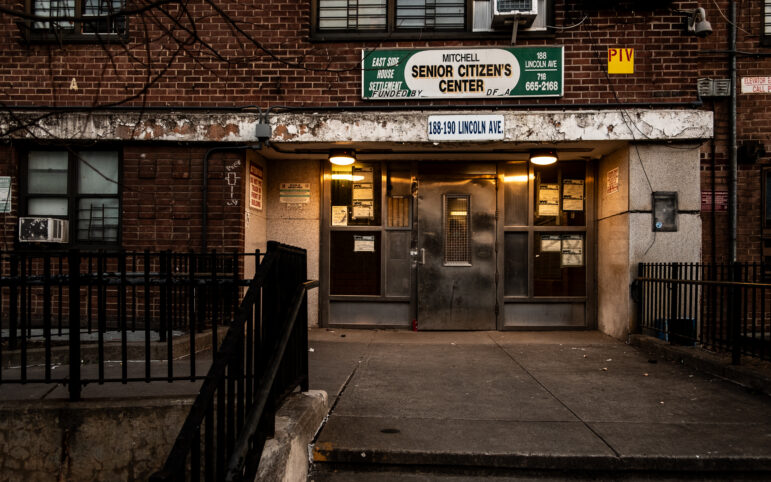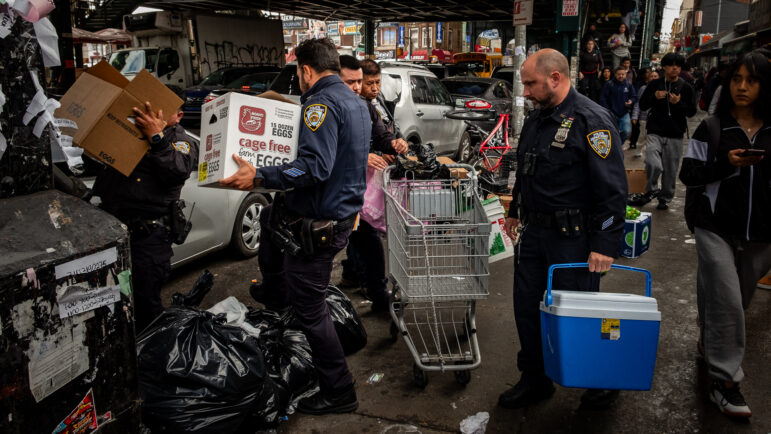
Photo by: Beyond My Ken
It’s not exactly turning a fire hose on civil rights demonstrators, but the recent story of the well-established Strand Book Store using its outdoor sprinkler system “to drive away homeless people” was certainly startling.
The story, broken by journalist Rosa Goldensohn on dnainfo.com, reported the Strand doused homeless people who took refuge under the bookstore’s awning in an effort “to keep people from sleeping out there.” It was an excellent story and well written. Anyone scanning the page upon page of reader comments could easily gauge the high interest level. I saw numerous mentions of it on twitter and elsewhere. I think it’s fair to say it went viral.
The public comments on the dnainfo.com webpage were mixed. Some were passionately outraged that people in need would be treated so harshly. Others sympathized with store management and their need to run a business.
Comments in public forums are always fascinating to me. They’re mostly short screeds with no real nutritional value. Putting aside the irrational blame-it-on-Obama rants, usually including obligatory references to Kenya and socialism or worse, and lots of name calling by posters protected by fake names, they might be thought of as some sort of focus group. One thing I draw from this set of comments is a streak of deep anger, bitterness, resentment and even depersonalization.
One commenter called turning sprinklers on people experiencing homelessness “a non-violent form of pest control.” Homeless people were referred to as “bums,” “crack heads,” “human debris,” “worthless,” “begging trash” and “lazy scum”.
Others claimed the sidewalks as public property, suggested more conventionally accepted methods of communicating with people and criticized the store for hiding behind a “veneer of society while dousing people with water in the freezing cold.” The store was referred to as cowardly and inhumane.
Goldensohn’s story quoted a Strand employee saying people sleeping on the sidewalk made it difficult to put out the book carts the Strands displays on the sidewalk each day and that it was “uncomfortable for some people.”
The story also quoted a homeless advocate calling it an “attack” and “not what caring people do to each other.”
It’s not unfair or wrong to want your sidewalk open and feel secure and comfortable in and around a business. Nor is it surprising people would recoil from the idea of moving poor, unfortunate people along by soaking them and all their few worldly possessions, especially in the cold as we approach that most American holiday, Thanksgiving.
I was surprised no one wrote about the dousing as battery, as in assault-and-battery. Battery is an intentional act causing a harmful or offensive touching of a victim. Assuming the story is correct, and no one has claimed it isn’t, did whoever turned on the sprinklers, an intentional act, cause a harmful or offensive contact? Courts have found it an illegal battery where someone spits in another person’s face. Throwing a bucket of water on someone to insult, offend or humiliate them—or move them along—might be battery. Is a stream of water via sprinkler any different?
Legalities, etiquette and humanity not-with-standing, the more relevant question is what should a person do in that situation?
As suggested in the comments, one answer might be to simply speak directly to the homeless people, but that may well have, and probably did, happen. It may have happened over and over. Let’s give the store manager the benefit of the doubt on that one.
A second suggestion is to call 311. New York City operates a 24-hour, 365-day-a-year, “aggressive” street outreach operation to assist and deal with homeless people. They will come when asked to “engage” homeless people. That means they’ll check on them, see if they have any emergency needs, encourage them to seek shelter or other housing, and especially on very cold or very hot nights attempt to get them off the streets.
The city claims to have successfully moved over 4,000 chronically homeless people off the streets through those outreach efforts over the years. Many chronically homeless people on the streets have mental or emotional issues, usually including some kind of paranoia or distrust of authority. They may be on the street because they don’t want to be in a shelter. So the city, its website assures, has alternatives to typical shelters including less restrictive options like safe havens or stabilization beds.
The outreach teams are specifically trained for these kinds of situations and have lots of experience in them. The Strand Bookstore type circumstance must be something they’ve dealt with many times. If they can’t handle it themselves they’re able to make referrals or bring other resources to bear.
Drenching poor, often mentally ill, unfortunate people and possibly destroying or damaging their possessions on or near your property may or may not be illegal, but it’s certainly disrespectful. It’s also a health hazard visited upon an already vulnerable population.
There’s a relationship between drenching-by-sprinkler and offensive name calling by postings on public web forums. Both are things people do without looking their targets in the eye, or having to see the hurt they cause. Both are actions that would probably never happen if that layer of anonymity were removed.








